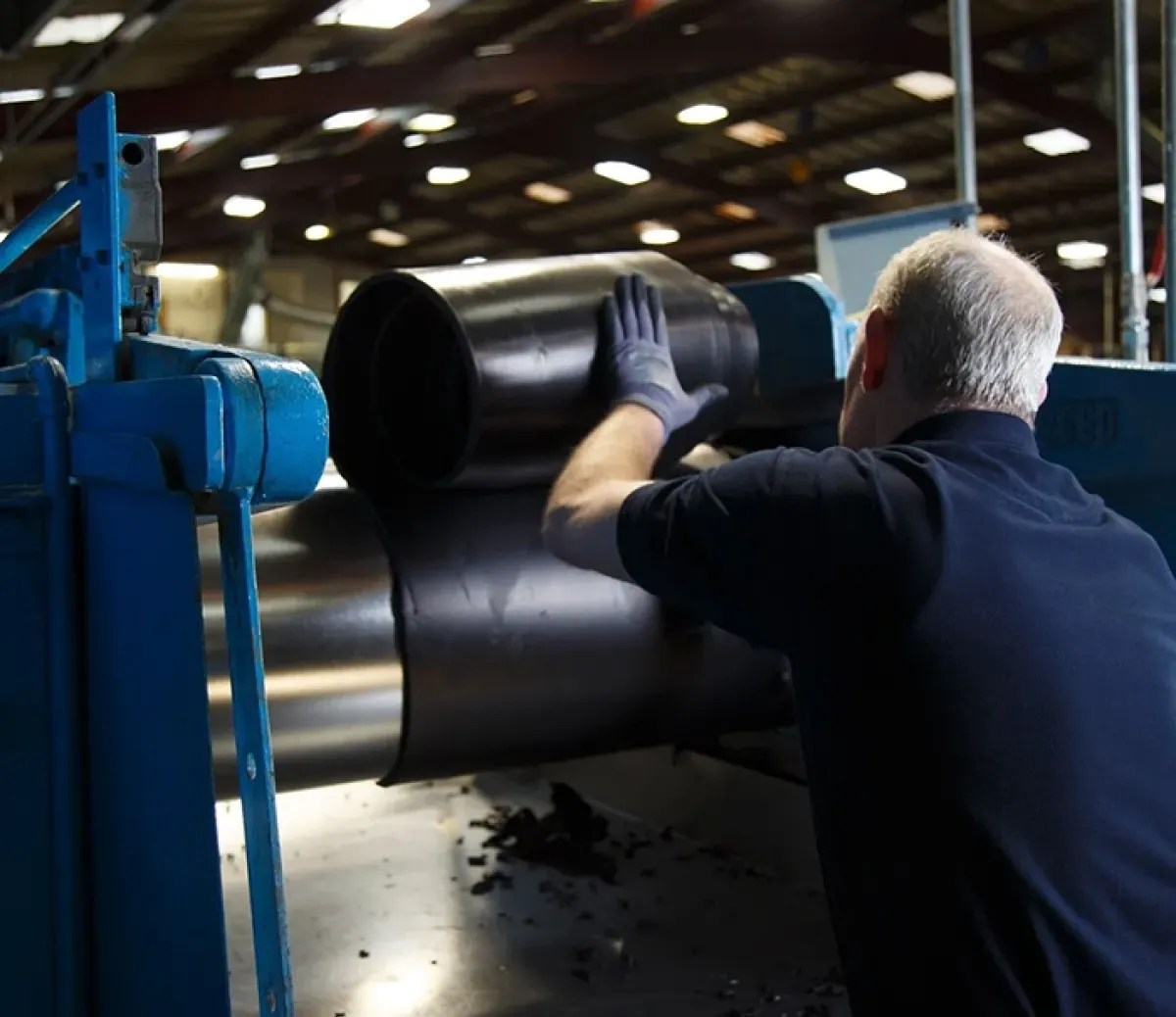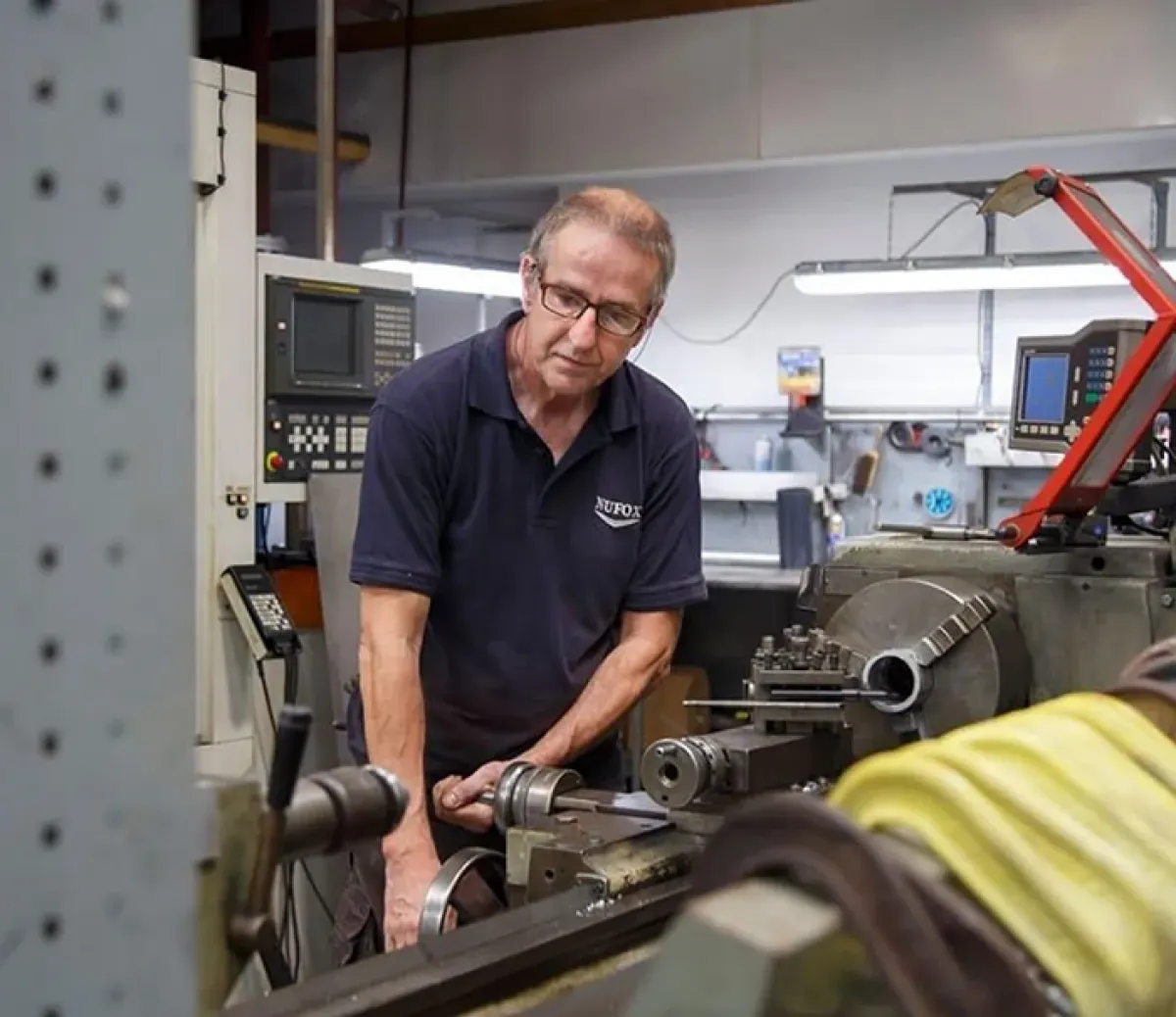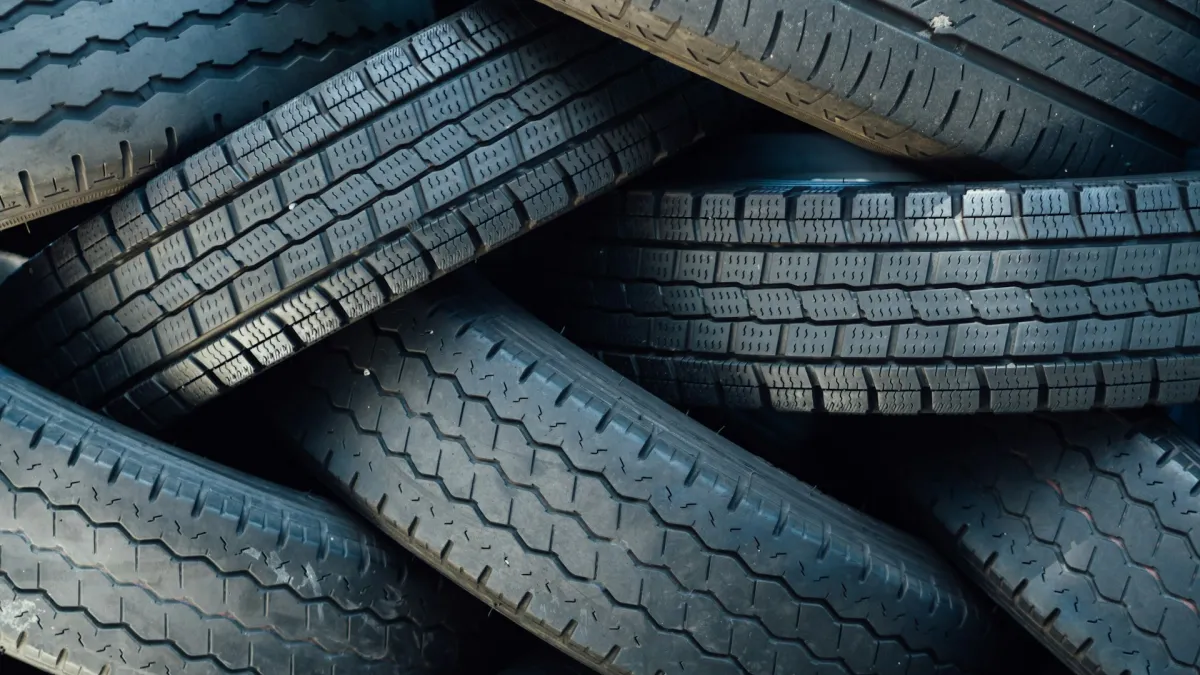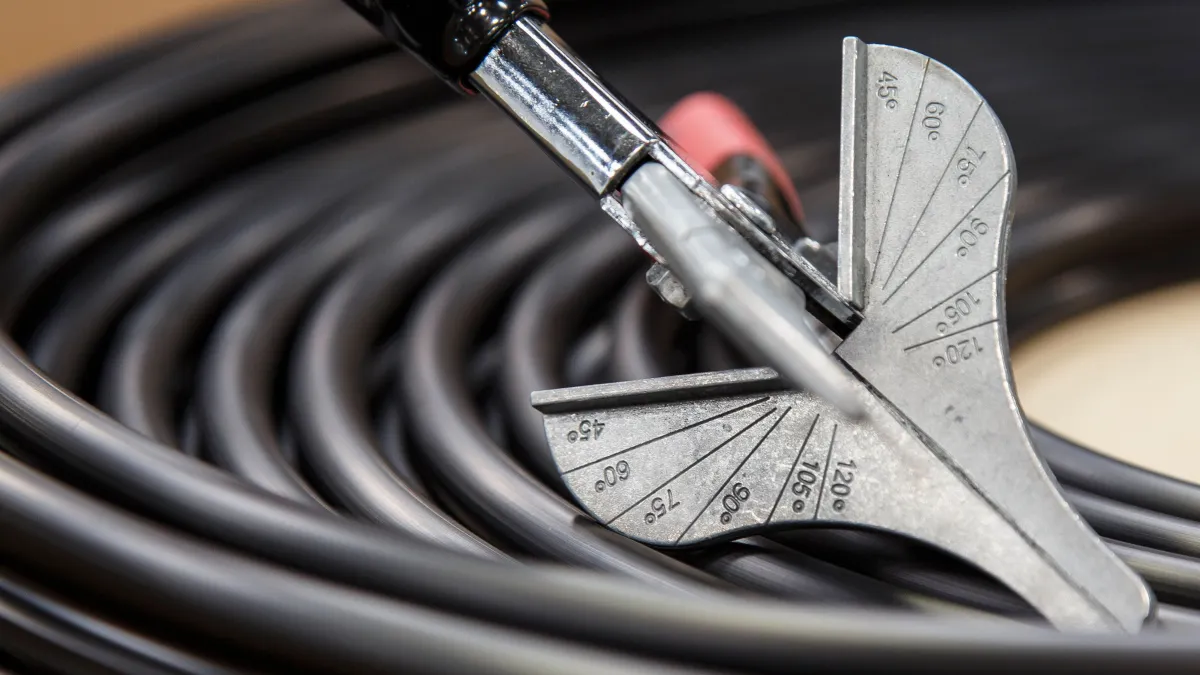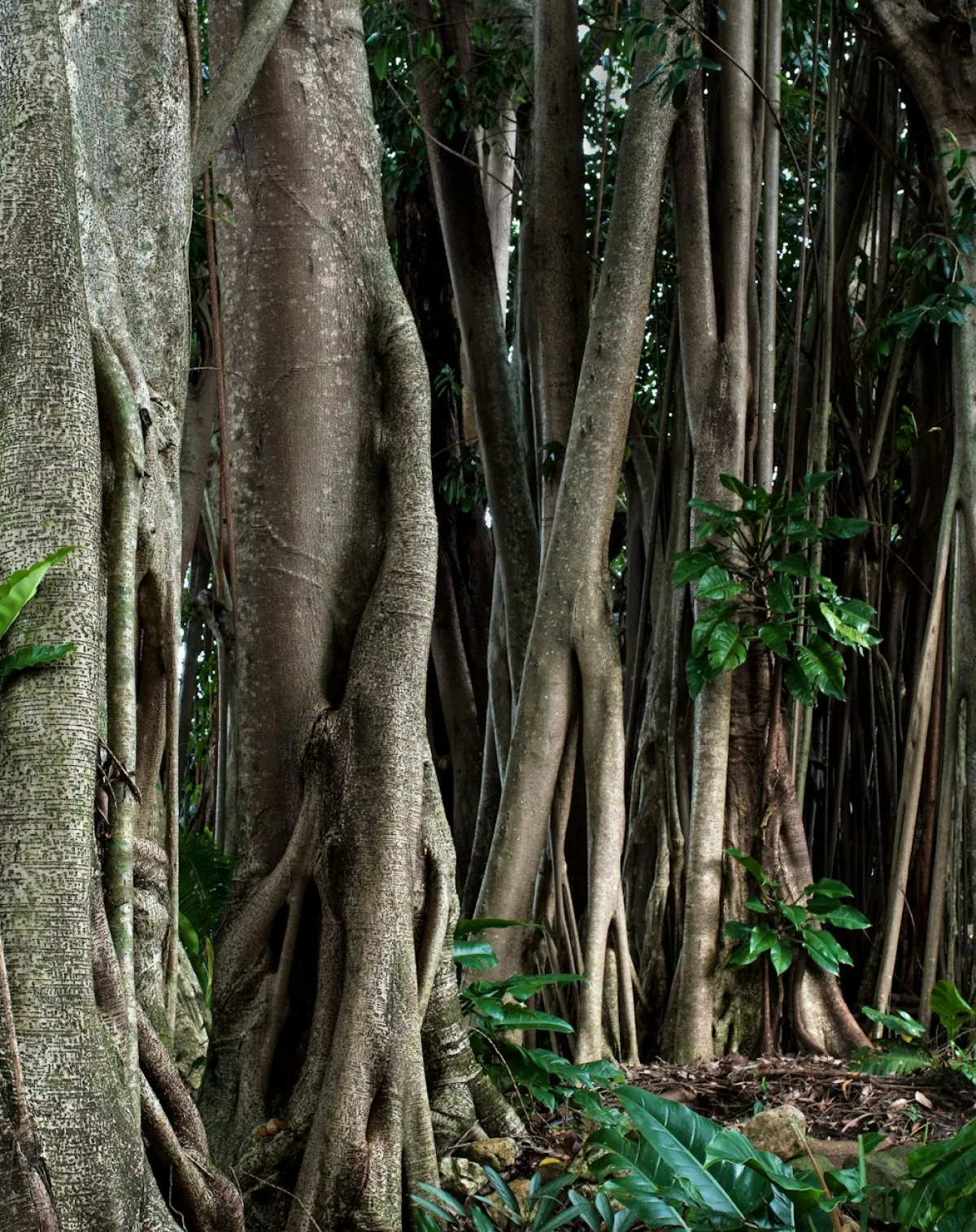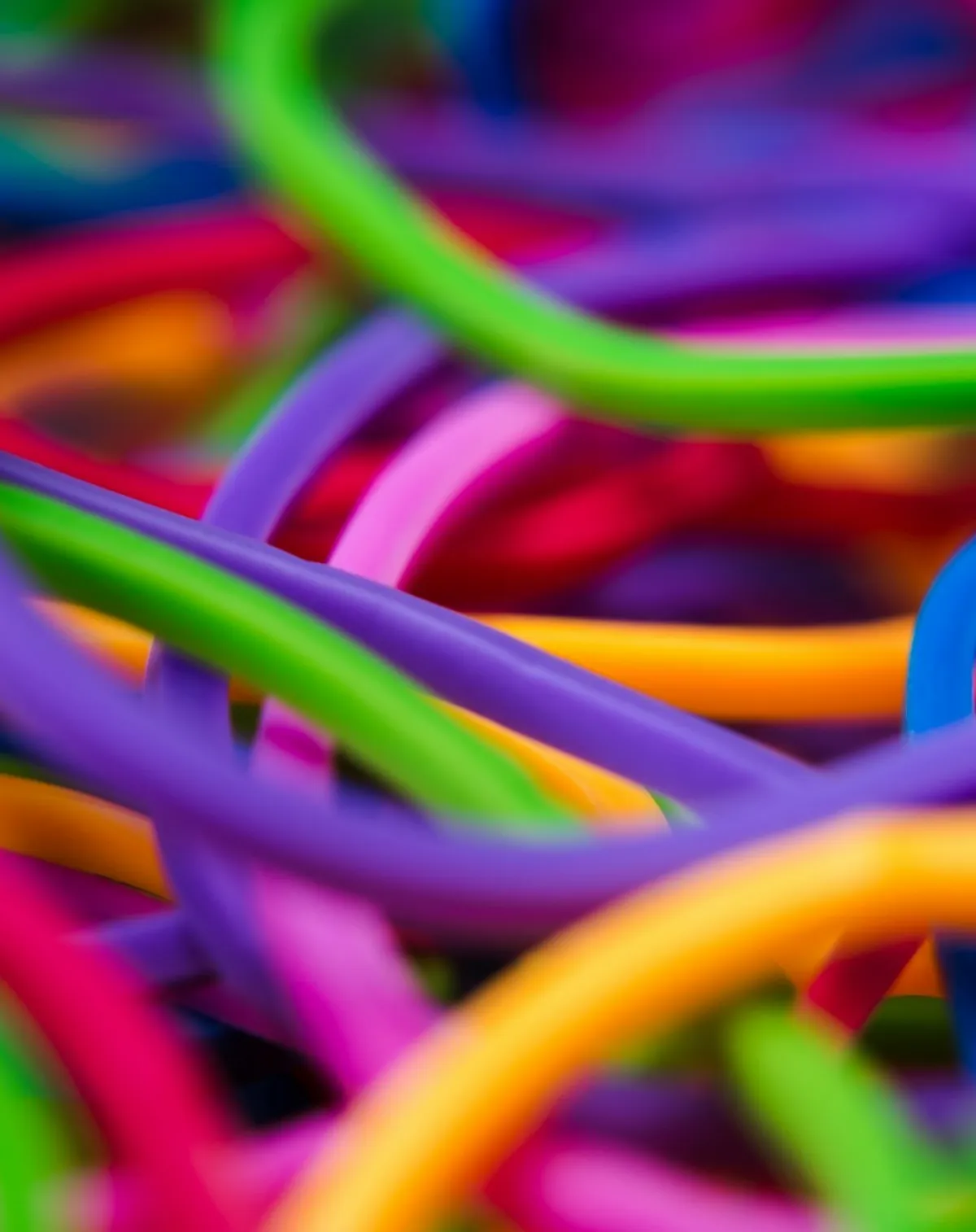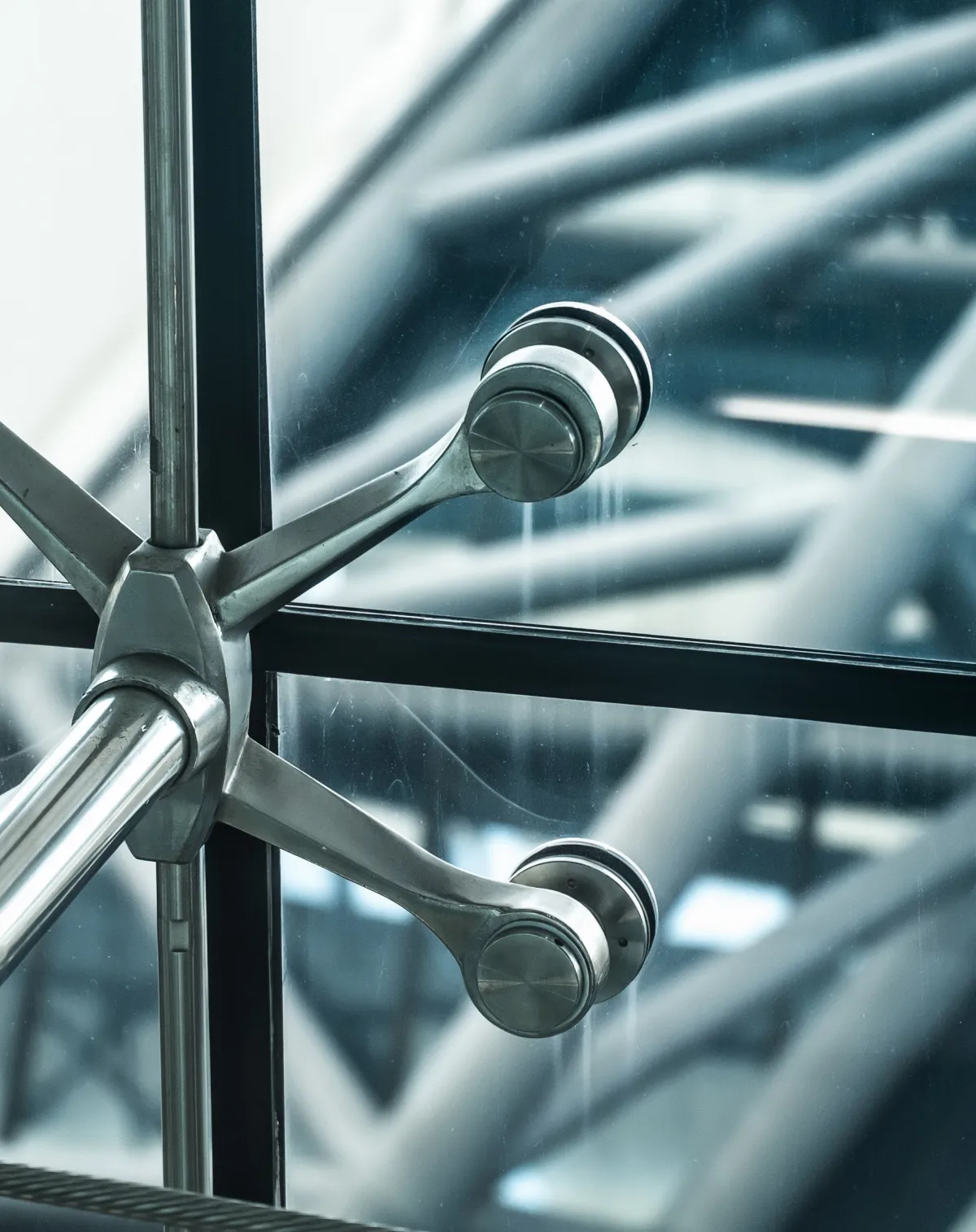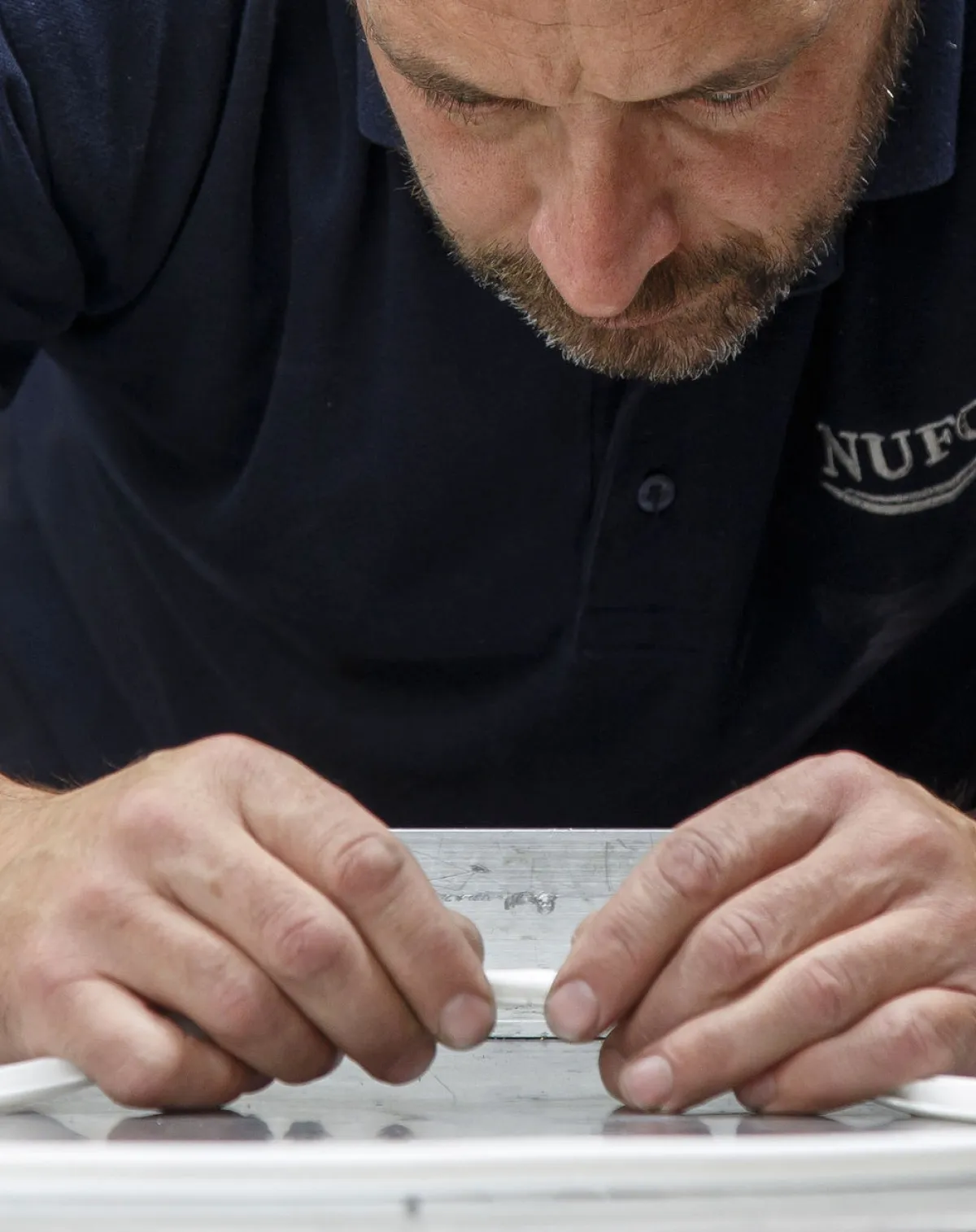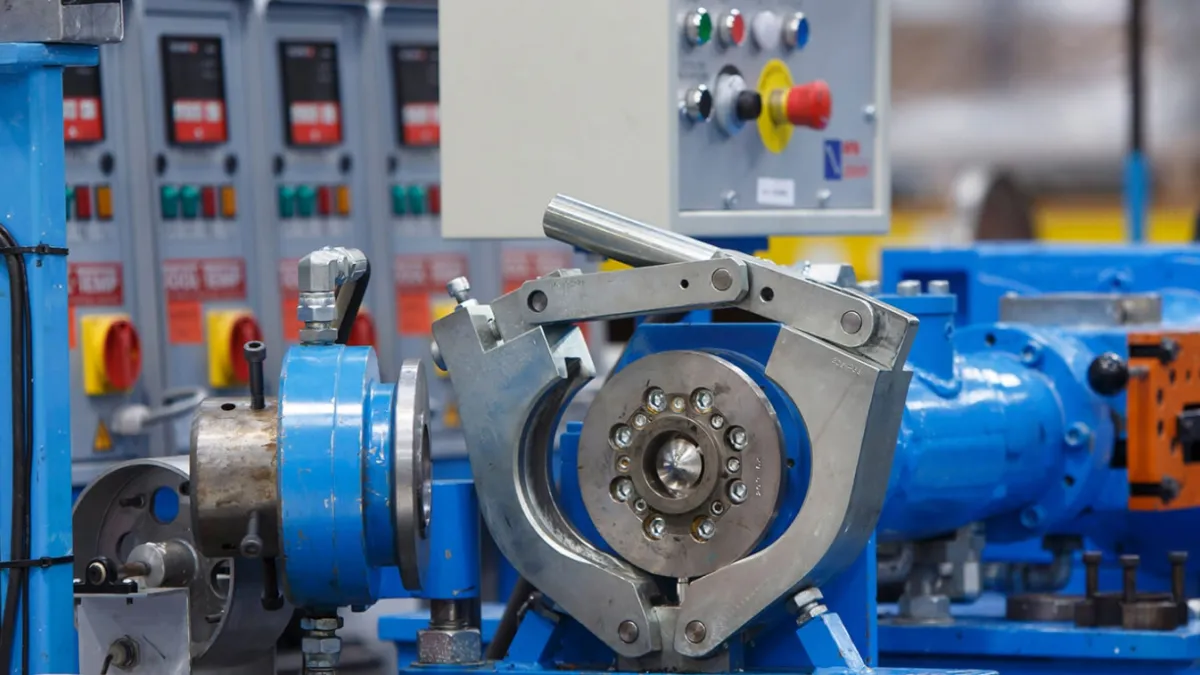By using this website, you agree to our Privacy Policy
×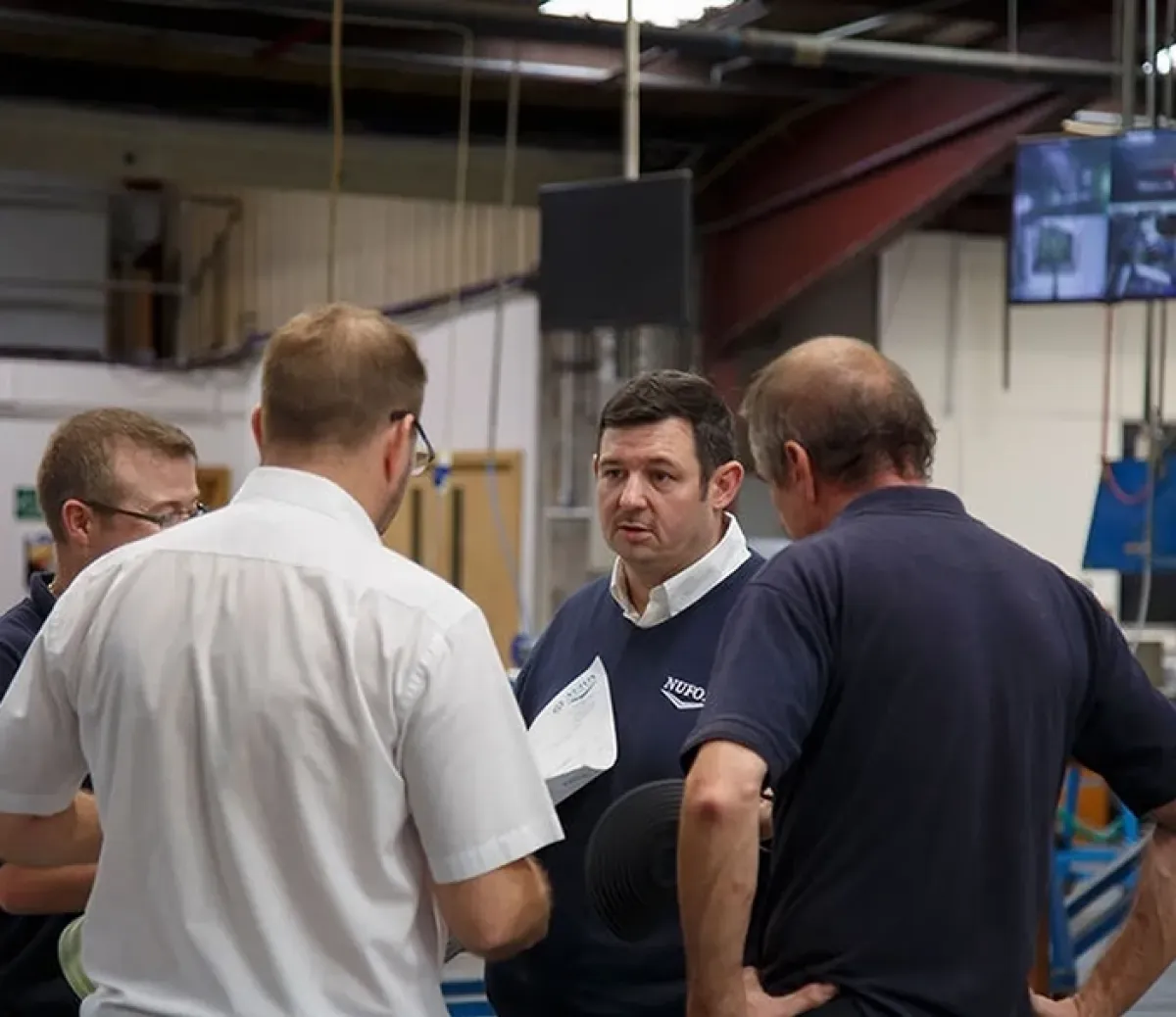
Sustainable Innovations and Advanced Technologies in UK Rubber Extrusion Manufacturing
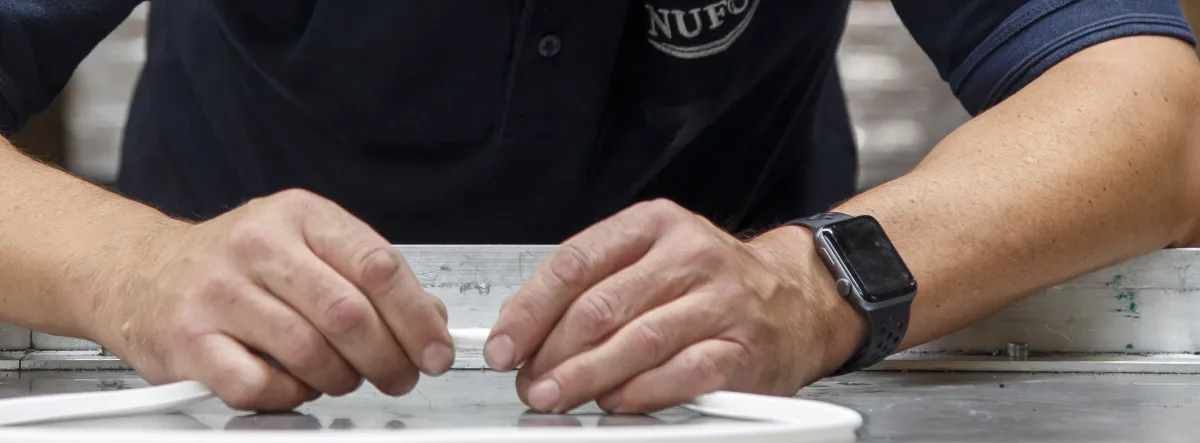
While traditional rubber extrusion applications will always be vital in British manufacturing, transformative innovations in material science, digital engineering, and sustainability are redefining what's possible in this sector. For UK manufacturers like Nufox, these advancements open us up to opportunities to lead in quality, environmental responsibility, and technical sophistication while addressing pressing challenges in resource efficiency and supply chain resilience.
Circular Economy Solutions in Rubber Material Sourcing
The truth is that Rubber waste is an untapped resource. The UK processes between 350,000 and 400,000 tonnes of end-of-life tyres annually, and there is growing pressure to divert this waste from landfills and incineration. This is changing as rubber extruders integrate circular economy principles at the material sourcing stage. Progressive extruders are integrating recycled rubber at unprecedented scales through advanced devulcanisation techniques. This means manufacturers can reclaim vulcanised rubber by breaking sulphur bonds without degrading polymer chains.
Edinburgh-based Recircle is just one example of innovation in rubber recycling. The organisation pioneered a biotechnology-assisted process that breaks sulphur bonds in waste rubber powders whilst preserving polymer chains. This enables higher reuse in new extrusions and significantly closes the loop in rubber production. When combined with low-temperature extrusion methods, this creates composite materials with mechanical properties similar to virgin rubber while reducing energy consumption.
Regulatory frameworks are catching up, too. Government-backed initiatives like the Tyre-Derived Rubber Materials Quality Protocol provide clear compliance frameworks for manufacturers. By combining post-consumer GTR (Ground Tyre Rubber) with bio-based plasticisers like epoxidised soybean oil, UK facilities can achieve a high percentage of recycled content in automotive sealing systems without compromising tensile strength or compression set. The Environment Agency's PAS 107 certification further validates these closed-loop processes, giving specifiers confidence in material traceability and lifecycle performance.
These innovations mark a turning point for rubber extrusion, transforming waste into high-performance materials and embedding sustainability into core manufacturing processes. As regulatory frameworks align with circular practices, UK extruders are better positioned to lead globally and deliver greener, cost-efficient solutions without compromising on mechanical integrity or quality assurance.
Energy-Efficient Manufacturing Through Digital Twin Integration
The UK's leadership in Industry 4.0 technologies is transforming extrusion operations. Digital twin technology is changing the way rubber extrusion processes are designed, tested, and refined. At its core, a digital twin is a real-time virtual model of a physical system. Digital twin systems, such as those developed through the £12 million UK Digital Twin Centre, enable real-time simulation of extrusion parameters before physical production begins. By creating virtual replicas of screw extruders, manufacturers can:
Accurately predict material flow characteristics, with simulation models achieving results within less than 10% of experimental data.
Optimise barrel temperatures to meet industry standards for precision temperature control.
Substantially reduce the number of physical trial runs required, as digital twin and virtual prototyping technologies enable faster troubleshooting and validation.
Recent studies have demonstrated the transformative impact of digital twin technology in rubber and polymer extrusion. For example, the DIGIT RUBBER project in Germany is developing an automated, AI-driven digital twin system specifically for rubber extrusion processes. This system integrates real-time online measurement and advanced 3D photogrammetric techniques to detect material fluctuations and control the extrusion process with high precision, enabling automated quality assurance and adaptive process regulation.
Similarly, research on digital twins for PVC tube extrusion has shown that machine learning-based digital twins can significantly reduce startup times and improve process efficiency. In one case study, a digital twin enabled real-time quality monitoring and rapid adjustment of extrusion parameters, allowing manufacturers to achieve customer specifications for thickness and weight within minutes, thereby increasing overall process efficiency and reducing material waste.
These developments highlight how digital twins-when applied to rubber and polymer extrusion-enhance process control, product quality, and operational efficiency by leveraging real-time data, predictive modelling, and automated adjustments.
Advanced Material Formulations for Specialist Applications
Innovations in rubber compounding are enabling UK and global manufacturers to meet demanding performance and sustainability requirements across diverse sectors. Recent developments focus on advanced hybrids, radiation-resistant compounds, and sustainable silicone alternatives.
A. High-Performance Hybrid Elastomers
Modern thermoplastic elastomer (TPE) technologies combine the advantages of thermoplastics and elastomers, delivering materials with Shore A hardness ranging from 55 to 80 and significantly improved mechanical and chemical resistance. These custom-engineered compounds can be processed efficiently via injection moulding or extrusion, offering continuous operating temperatures up to 150°C and outstanding resistance to oils, greases, lubricants, and fuels. Notably, they remain recyclable since the material is not crosslinked during production. Applications include engine covers, vibration-absorbent components, and connectors in automotive and industrial settings.
Recent advances also enable the incorporation of reclaimed ground tyre rubber (GTR) into new rubber matrices. For example, up to 40% reclaimed GTR can be blended into natural rubber, enhancing mechanical properties and ageing resistance while supporting circular economy goals.
B. Radiation-Resistant Compounds
For the nuclear sector, specialised rubber compounds are engineered to withstand intense radiation, extreme temperatures, and aggressive chemicals. EPDM rubber enhanced with boron nitride (BN) has demonstrated improved neutron radiation shielding, with higher BN content increasing both shielding effectiveness and mechanical properties. Such materials are used for seals, gaskets, and protective barriers in nuclear facilities, maintaining integrity and performance over extended periods in harsh environments.
C. Bio-Based and Recycled Silicone Alternatives
The UK’s Advanced Polymers, with Innovate UK support, has developed Silicrumb™, the first recycled silicone rubber product suitable for extrusion and compression moulding. Silicrumb™ offers technical properties comparable to virgin silicone rubber, including similar processing behaviour and a wide range of applications in food, pharmaceuticals, and aerospace. This innovation addresses the challenge of silicone waste, helping divert material from landfill and supporting net-zero ambitions. The product is being adopted by major organisations seeking sustainable supply chain solutions.
Material Type | Key Properties | Typical Applications | Sustainability Features |
Advanced TPE Hybrids | Shore A 55–80, up to 150°C, chemical resistance | Automotive, industrial, engines | Recyclable, reduced cycle time |
GTR-Reinforced Rubber | Enhanced mechanical/ageing with up to 40% GTR | Seals, gaskets, general rubber | High recycled content |
EPDM/BN Radiation-Resistant | Improved neutron shielding, mechanical durability | Nuclear sector seals/barriers | Long service life, custom-engineered |
Recycled Silicone (Silicrumb™) | Comparable to virgin silicone, processable, durable | Food, pharma, aerospace | 100% recycled silicone, landfill diversion |
Smart Extrusion Systems and Process Automation
Modern rubber extrusion lines are increasingly adopting smart technologies to enhance process stability, efficiency, and product quality. These advances include the integration of real-time sensors, artificial intelligence, and adaptive control systems.
Advanced Process Monitoring and AI-Based Control
Recent research demonstrates that combining multiple sensor techniques with AI-based process control can directly detect changes in the extrusion process and product quality. For example, a 2024 study describes a smart rubber extrusion line that uses innovative measurement systems and AI algorithms to monitor and automatically adjust the extrusion process, leading to improved resource efficiency and consistent product quality.
Real-Time Temperature Control
Precise temperature control is critical in rubber extrusion due to the sensitivity of rubber compounds to temperature fluctuations. New control systems using artificial neural networks (ANNs) have achieved high precision in real-time temperature regulation. A 2024 study reports that such systems can predict and adjust temperature variations with a mean squared error of just 0.63°C² and respond to deviations within 68 milliseconds, resulting in enhanced process stability compared to traditional PID controllers.
AI-Driven Quality Assurance
AI-powered computer vision systems can now be used for real-time surface defect detection in polymer and rubber extrusion. These systems employ cameras and sophisticated AI algorithms to identify defects with over 99% accuracy and response times as fast as 20 milliseconds. This enables immediate corrective action, reduces downtime, and improves overall quality management.
Predictive Maintenance with IoT Sensors
IoT sensors are increasingly integrated into extrusion machinery to monitor equipment condition and performance. These sensors enable predictive maintenance strategies that help prevent unexpected breakdowns and optimise production schedules by collecting real-time data. This approach has been shown to improve productivity and reduce unplanned downtime in the rubber manufacturing sector.
Regulatory Compliance and Sustainable Certification
Post-Brexit, UK rubber extrusion manufacturers face evolving regulatory requirements and new opportunities. Companies must comply with UKCA marking for most products, which involves meeting relevant UK regulations and maintaining technical documentation. For rubber extrusions, additional standards may include FDA, WRAS, and ISO certifications, depending on the application. Environmental compliance is increasingly important, with regulations covering waste management, emissions, and the use of recycled materials. The UK government encourages sustainable manufacturing through policies promoting energy efficiency, recycling, and responsible sourcing of raw materials. While PAS 2050 carbon footprint audits and supply chain transparency under the Modern Slavery Act are not mandatory for UKCA marking, they are adopted by many manufacturers to demonstrate sustainability and ethical practices. These measures help UK rubber extrusion businesses remain competitive, ensure product quality, and support environmental goals.
Positioning for Sustainable Growth
The UK rubber extrusion industry stands at an inflexion point. By embracing circular material flows, digital manufacturing technologies, and stringent sustainability protocols, manufacturers can deliver innovative solutions that meet 21st-century challenges. Success will depend on:
Strategic partnerships with academia and technology providers
Adoption of Industry 4.0 quality management systems
Proactive engagement with evolving regulatory frameworks
For specifiers and engineers, this new generation of advanced rubber extrusions offers unprecedented performance characteristics while supporting net-zero commitments. As material science and production technologies continue to advance rapidly, UK manufacturers are poised to set global benchmarks in precision, sustainability, and technical excellence.
Speak to One of Our Experts
Contact UsLEARN
INDUSTRIES
PRODUCTS
BRANDS
GET IN TOUCH

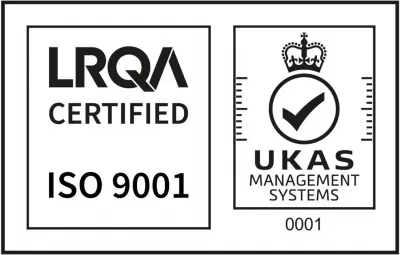
- © 2026 Nufox. All rights reserved |
- Terms & Conditions |
- Privacy Policy |
- Download ISO Certificate | Web Design MadeByShape
